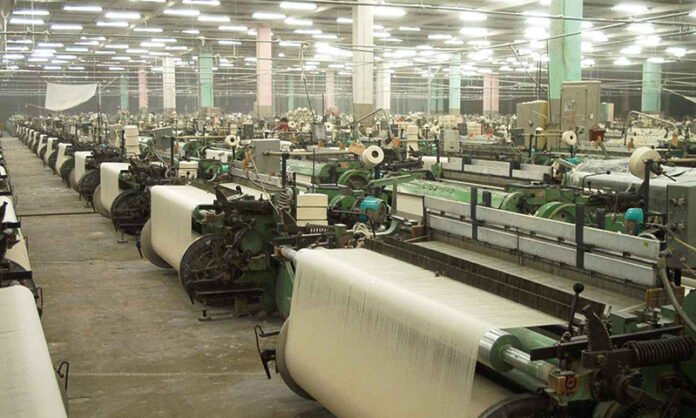LAHORE: The country’s textile millers have urged the government to restore the “zero-rating regime” for the export-oriented sector.
In a letter sent on Tuesday to Adviser to Prime Minister on Commerce Abdul Razzak Dawood, All Pakistan Textile Mills Association (APTMA) Chairman Dr Amanullah Kassim brought the government’s attention to various discussions it had held with the industry prior to the withdrawal of SRO 1125 (zero-rating) in July 2019.
“While giving a justification for withdrawal of SRO 1125 at the time, the Federal Board of Revenue (FBR) had reasoned that ‘domestic sales constituted 50pc of textile industry output and somehow the industry was evading approximately $12 billion worth sales tax on domestic sales’,” the letter noted.
Dr Kassim maintained that this claim of FBR has proven to be erroneous and has as such now been admitted by the revenue board.
“FBR now states that domestic sales of the textile sector only account for 20pc of the overall value of textile production in Pakistan,” he added.
The textile miller said due to the misplaced withdrawal of zero-rating, the entire textile industry has suffered a severe setback, with approximately Rs20 billion per month (sales tax input) being shifted from the industry to FBR.
“This amount could have been spent on new projects, upgradation and expansion of the industrial base, which in turn could have resulted in increased exports from the country.”
He claimed that the economic cost of the withdrawal of zero-rating regime has been colossal.
“This money is more than the profitability of industrial units, while borrowings from banks increase the cost of doing business by about 6pc. This negates all the governments’ laudable efforts to reduce the cost of doing business,” the APTMA chairman said.
He recalled that at the time of withdrawal of SRO 1125, the government had assured the industry that it would review the situation in 6-8 months’ time. More than nine months have now passed, and it is evident that the sales tax system is not contributing significantly to the FBR kitty, he added.
“On the other hand, the government, FBR and the entire industry is constantly holding meetings and wasting precious time and money on resolving the issue of refunds,” Dr Kassim said.
He furthered informed that the situation post-Covid19 has changed drastically for the industry, as export orders have been cancelled, payments due against LCs delayed, while fresh orders not forthcoming.
“This is because of a complete collapse of markets and demand for textiles in Europe and the USA. Circumstances are not expected to return to normalcy even after a year,” he maintained.
He feared that it is not possible to expect the textile value chain to keep paying sales tax in the absence of cash flow, with little chance of being paid for the goods or sales tax by FBR.
“Under these circumstances, we request that the withdrawal of zero-rating may kindly be withdrawn forthwith”.
Dr Kassim said if the government still wishes to collect sales tax on domestic sales from a market that is already in dire straits, then it should collect the sales tax at the Points of Sale.
“In the foreseeable future, the continuation of sales tax regime applicable to an industry with 80pc exports is counterproductive and will make the recovery of exports to any significant level post-COVID almost impossible,” he stated. “We request that the Ministry of Commerce may table our submissions to the appropriate forum for immediate restoration of the zero-rating regime.”




